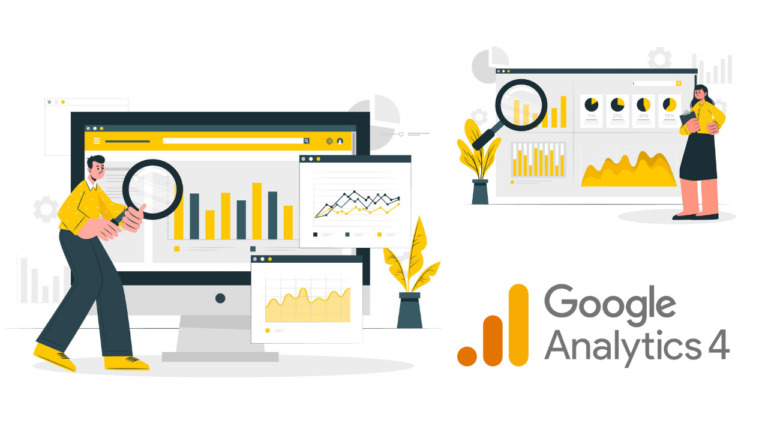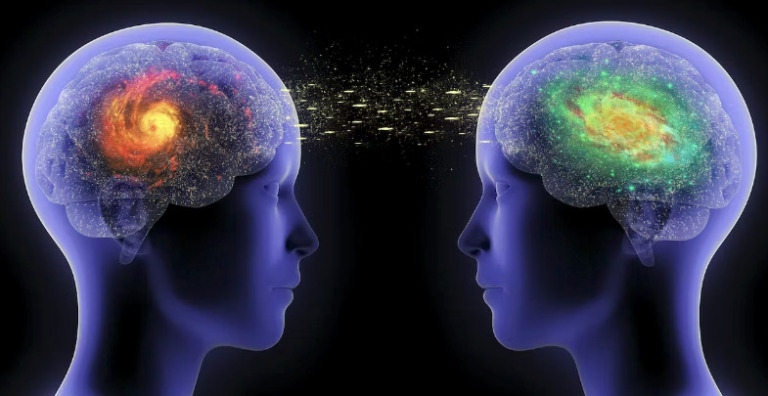Unlocking the Power: How AI Can Affect Your Digital Marketing Campaigns
If you’re preparing your digital marketing efforts for the year, staying informed about the latest industry trends and changes is crucial. One of the most significant changes in recent years is the rise of artificial intelligence (AI) and its impact on digital marketing.
AI is already transforming the way businesses approach marketing, and its importance will continue to grow. In this blog, we will explore how AI can affect your digital marketing campaigns and provide you with a comprehensive understanding of its advantages and how to get started.

What is AI?
Artificial intelligence (AI) is a computer-based system that can process information, analyze data, and make informed decisions. This adaptable technology is being increasingly utilized in digital marketing to improve campaign performance and provide personalized customer experiences. Marketers can leverage AI to create targeted ads, enhance customer interactions, and streamline time-consuming tasks.
AI is used in a variety of digital marketing methods, including pay-per-click and content marketing, because of its capacity to automate repetitive operations and provide personalised customer engagements.
How AI is affecting digital marketing
AI is revolutionizing digital marketing by automating repetitive tasks, enabling personalization, improving targeting and segmentation, enhancing efficiency, and empowering predictive analytics. Here are some concrete examples of how AI is transforming the digital marketing landscape:
- Automating boring jobs: Artificial intelligence enables marketers to automate repetitive processes, freeing up important time for more strategic tasks and analysis.
- Personalization: By utilizing AI, marketers may design unique marketing strategies that are tuned to particular customer interests, hence improving client experiences.
- AI plays an important role in improving client targeting and segmentation, leading in more successful and precise advertising campaigns.
- Increased efficiency: Artificial intelligence decreases the time spent on data processing and other duties, enhancing overall efficiency and allowing marketers to focus on essential areas of their campaigns.
- Predictive analytics: By leveraging the power of predictive analytics, marketers may acquire a better understanding of customer behavior and forecast future patterns, allowing for more proactive decision-making.
The Advantages of Using AI in Digital Marketing
Incorporating AI into your digital marketing campaigns offers numerous advantages. Here are some of the most significant benefits:
Advantage Description
Increased Productivity Automates tedious operations, allowing marketers to focus on strategic tasks.
Improved Decision Making Utilizes complex data and predictive analytics for informed and accurate decision-making.
Enhance Targeting indentifies the best demographic for campaigns and enables personalized content and offers.
Greater ROI Optimizes marketing initiatives for cost savings and maximized return on investment.
Improved Efficiency Streamlines marketing campaigns and tasks, resulting in better performace and results.
Chart: The Advantages of Using AI in Digital Marketing
If you want to learn more about how to use an AI Tool, head to our blog post Using ChatGPT for Email Marketing and to learn more about the advantages of using AI Digital Marketing.
How to Get Started with Using AI for Your Digital Marketing Campaigns
Getting started with AI for digital marketing campaigns may seem intimidating, especially if you’re unfamiliar with the technology. However, it’s not as difficult as it may seem. Here are some steps you can take to start using artificial intelligence in your digital marketing campaigns:
- Invest in Powerful Hardware: To set up an AI system, it’s important to have powerful hardware that can handle the complexity and load of AI processing and data storage. Invest in gear capable of meeting these requirements.
- Determine Your Goals: Define your desired goals for your digital marketing strategy. AI systems can be trained to anticipate outcomes, but it’s crucial to have a precise specification of the intended results.
- Create a Data Model: Develop a data model that will be used by the AI systems to predict results. This data model should incorporate relevant customer data acquired through customer surveys, point of sale data, customer feedback, and other reliable sources.
- Test and Fine-Tune Your AI System: Test and fine-tune your AI system to ensure that it accurately predicts the intended outcomes. Iteratively refine the system based on the feedback and results obtained.
- Monitor and Track Performance: Continuously monitor and track the performance of your AI system to ensure it aligns with the required goals. Make necessary adjustments and optimizations as you gather insights from its performance.
By following these steps, you’ll be able to start incorporating AI into your digital marketing initiatives. If you have any questions or need assistance, there are numerous online resources available to support you. With the necessary resources, you can leverage AI to significantly enhance the results of your digital marketing efforts.
Conclusion
AI has the potential to completely transform digital marketing strategies. Marketers can utilize AI to deliver highly targeted marketing campaigns that result in improved conversions and a higher return on investment. By providing personalized experiences and leveraging predictive analytics, AI opens up new possibilities for marketers to optimize their campaigns and achieve better outcomes.
It’s important to note that the effectiveness of AI depends on the quality of the data it is fed. To harness the full potential of AI, marketers must gather high-quality data that encompasses demographics, customer preferences, purchasing trends, and other relevant information.
While the precise impact of AI on the digital marketing landscape is still evolving, there’s no denying its transformative power. By staying up to date with the latest advancements and effectively utilizing AI, marketers can stay ahead of the curve in the ever-changing digital marketing arena. Embracing AI and its expanding applications will empower marketers to navigate the future with confidence and drive success in their campaigns.
Share
Dina Berrios
Content and Social Media Specialist
Experienced in content and social media management, she excels at creating engaging content, developing effective social media strategies, and analyzing metrics for business growth.Recent Articles

Sustainable Marketing: Long term Sustainability Success
Previous Post Sustainable Marketing in the Digital World: Embracing Sustainability for long term Success In today’s digital era of constant connectivity, marketing has evolved into

Google Analytics 4. Collecting data in 2023
Previous PostNext Post Google Analytics 4 (GA4) and the new way of collecting data in 2023 In an era driven by data, businesses are increasingly

Communication in project management: easier said than done?
Previous PostNext Post Communication in project management: easier said than done? Communication is the foundation of Project Management. But, what is the ‘right’ way to
